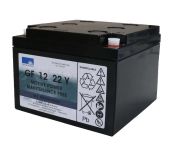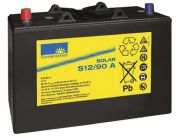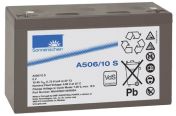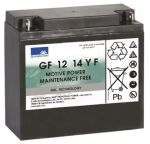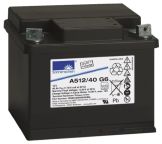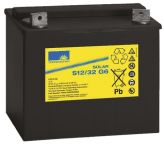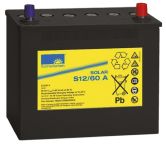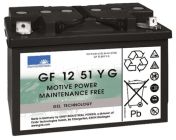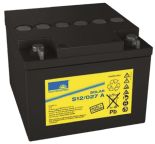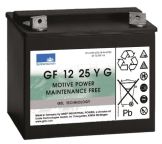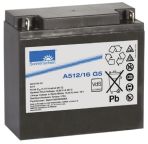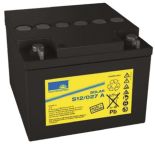
Sonnenschein
14 Products showing for Sonnenschein
1 of 1
In Stock
- RS Stock No. 211-8953
- Mfr. Part No. GF12022YT
- Brand Sonnenschein
- Features -
- Capacity 22Ah
- Nominal Voltage 12V
- Construction VRLA
Subtotal (1 unit)
$761.40(exc. GST)
Currently unavailable
- RS Stock No. 652-1569
- Mfr. Part No. NGA5120002HS0SA
- Brand Sonnenschein
- Features -
- Capacity 2Ah
- Nominal Voltage 12V
- Construction Gel
Subtotal (1 unit)
$123.74(exc. GST)
In Stock
- RS Stock No. 652-1430
- Mfr. Part No. NGSO120090HS0CA
- Brand Sonnenschein
- Features -
- Capacity 90Ah
- Nominal Voltage 12V
- Construction Gel
Subtotal (1 unit)
$1,222.40(exc. GST)
Being discontinued
- RS Stock No. 652-1496
- Mfr. Part No. NGA5060010HS0SA
- Brand Sonnenschein
- Features -
- Capacity 10Ah
- Nominal Voltage 6V
- Construction Gel
Subtotal (1 unit)
$117.15(exc. GST)
Currently unavailable
- RS Stock No. 652-1424
- Mfr. Part No. GF12014YF
- Brand Sonnenschein
- Features -
- Capacity 15Ah
- Nominal Voltage 12V
- Construction Gel
Subtotal (1 unit)
$389.65(exc. GST)
Limited stock
- RS Stock No. 652-1519
- Mfr. Part No. NGA5120040HS0BA
- Brand Sonnenschein
- Features -
- Capacity 40Ah
- Nominal Voltage 12V
- Construction Gel
Subtotal (1 unit)
$615.12(exc. GST)
In Stock
- RS Stock No. 652-1597
- Mfr. Part No. NGSO120032HS0BA
- Brand Sonnenschein
- Features -
- Capacity 32Ah
- Nominal Voltage 12V
- Construction Gel
Subtotal (1 unit)
$431.33(exc. GST)
Currently unavailable
- RS Stock No. 652-1474
- Mfr. Part No. NGA50603D5HS0SA
- Brand Sonnenschein
- Features -
- Capacity 3.5Ah
- Nominal Voltage 6V
- Construction Gel
Subtotal (1 unit)
$117.97(exc. GST)
In Stock
- RS Stock No. 652-1480
- Mfr. Part No. NGS0120060HS0CA
- Brand Sonnenschein
- Features -
- Capacity 60Ah
- Nominal Voltage 12V
- Construction Gel
Subtotal (1 unit)
$685.04(exc. GST)
Currently unavailable
- RS Stock No. 652-1632
- Mfr. Part No. GF12051YG1
- Brand Sonnenschein
- Features -
- Capacity 56Ah
- Nominal Voltage 12V
- Construction Gel
Subtotal (1 unit)
$437.00(exc. GST)
In Stock
- RS Stock No. 652-1452
- Mfr. Part No. NGSO120027HS0BA
- Brand Sonnenschein
- Features -
- Capacity 27Ah
- Nominal Voltage 12V
- Construction Gel
Subtotal (1 unit)
$364.19(exc. GST)
Limited stock
- RS Stock No. 652-1468
- Mfr. Part No. GF12025YG
- Brand Sonnenschein
- Features -
- Capacity 25Ah
- Nominal Voltage 12V
- Construction Gel
Subtotal (1 unit)
$506.09(exc. GST)
Last RS stock
- RS Stock No. 652-1531
- Mfr. Part No. NGA5120016HS0BA
- Brand Sonnenschein
- Features -
- Capacity 16Ah
- Nominal Voltage 12V
- Construction Gel
Subtotal (1 unit)
$354.92(exc. GST)
In Stock
- RS Stock No. 652-1446
- Mfr. Part No. NGS0120041HS0CA
- Brand Sonnenschein
- Features -
- Capacity 41Ah
- Nominal Voltage 12V
- Construction Gel
Subtotal (1 unit)
$484.33(exc. GST)
Results per page
